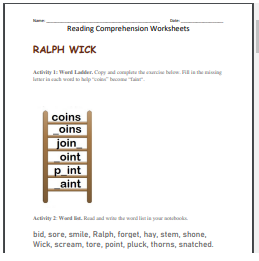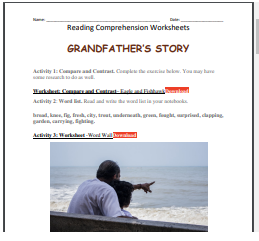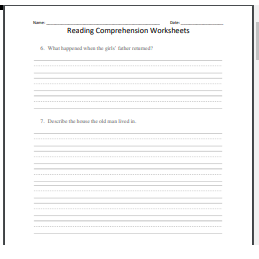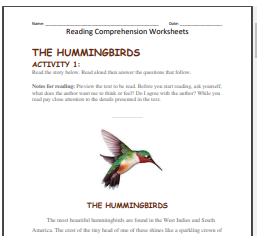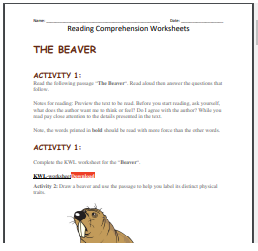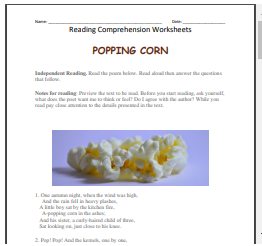Introduction
A distinct articulation can only be gained by constant and careful practice of the elementary sounds.
Advice for teachers: Whenever a word is imperfectly enunciated, it is always better to call attention to the sounds composing the spoken word. If the pupil fails to sound any element of the word correctly, as is common with of lisping, the fault can be corrected by encouraging the correct position of the organs of speech. Then insist that the words are pronounced correctly, unless the student has some malformation of these organs. Have the student practice the sounds regularly until perfected.
Note: The student will need to have some prior knowledge before attempting these exercises. Any trouble with simple words indicates that the student should begin instead in the Reading lessons at level 3.
Tips on improving your comprehension skills:
- Look for clues in the text to understand new words.
- For nonfiction stories, put yourself in the story as you read.
- Visualize what you are reading in the story.
- Use mental models to help you make sense of what you are reading.
Exercises in Articulation and Emphasis
This lesson, and the examples given, should be repeatedly practiced. In reading and in talking, we always speak some words with more force than others. We do this, because the meaning of what we say depends most upon these words. If I wish to know whether it is George or his brother who is sick, I speak the words George and brother with more force than the other words. I say, Is it George or his brother who is sick? This greater force with which we speak the words is called EMPHASIS.
The words upon which emphasis is put, are sometimes printed in slanting letters, called Italics or bolded, and sometimes in CAPITALS (on this site we will bold the words). The words printed in Italics in the following questions and answers, should be read with more force than the other words, that is, with emphasis.
Did you ride to town yesterday? No, my brother, did.
Did you ride to town yesterday? No, I walked.
Italics are also used for other purposes, though most frequently for emphasis. In the reading lessons that follow some words are in italics for emphasis. Practice reading and make sure you emphasize the words in italics.
Note: Punctuations should be thoroughly studied by the pupil, in order that he/she may become perfectly familiar with the marks and pauses found in the reading lessons of this volume.
Practice Exercise
Did you ride to town yesterday? No, I went the day before.
Have you seen James or John lately? I have seen James, but not John.
Did you say there were four eggs in the nest, or three? There were only three eggs, not four.
Were the eggs white or blue? The eggs were white, not blue.
Had the boy a hat on his head, or a cap? He had a cap on, not a hat.
Worksheets
Continue your practice! All reading exercises can be found in the worksheets below.
Clicks on the links below to download the PDF worksheets.





